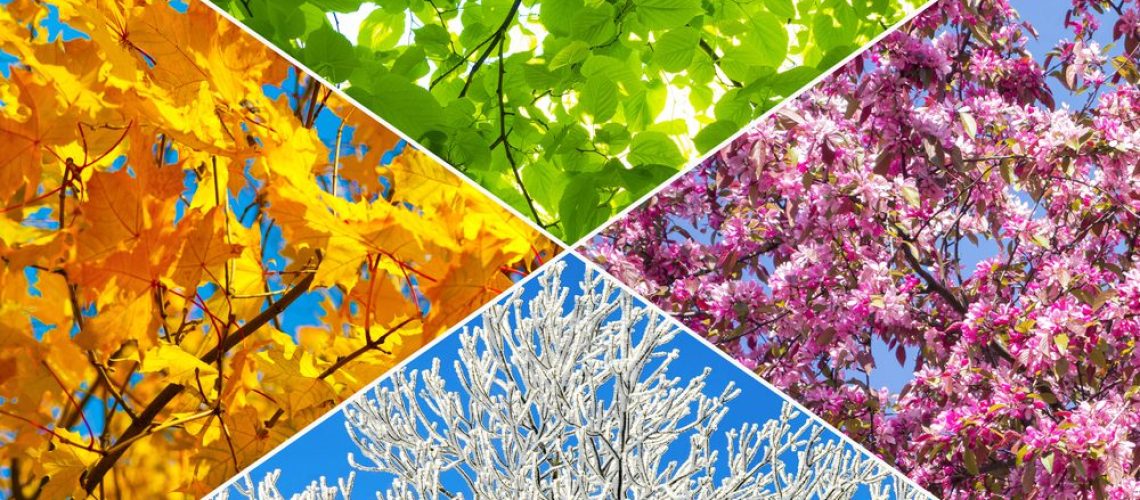Nature has an incredible way of teaching us profound life lessons. From the resilience of a tiny seed breaking through the soil to the majestic strength of mountains standing tall against the elements, the natural world offers a wealth of wisdom. Let’s explore some key life lessons that nature imparts, helping us navigate our journeys with greater insight and appreciation.
Resilience in Adversity
One of the most striking examples of natural resilience is how plants and animals thrive despite harsh conditions. For instance, consider the dandelion, a flower often regarded as a weed. Dandelions can grow in various environments, from cracks in sidewalks to barren fields. Their ability to flourish where others cannot serve as a reminder that resilience is about adapting and thriving, even when faced with challenges.
Adversity can take many forms in our lives, such as personal struggles, career setbacks, or unexpected changes. Like the dandelion, we can learn to adapt and find ways to grow stronger. Embracing resilience means acknowledging our challenges and recognizing our capacity to overcome them.
The Importance of Community
In nature, many species rely on the community for survival and success. For example, bees work together in hives to gather nectar, pollinate flowers, and sustain their colony. This collaboration benefits individual bees and supports the ecosystem as a whole.
Similarly, we thrive when we build and nurture our communities. Whether through family, friendships, or professional networks, having a support system is essential. As bees depend on one another, we can lean on our communities during tough times and celebrate together during joyful moments. This interconnectedness highlights the importance of fostering relationships and supporting one another.
Embracing Change
Nature is in a constant state of change. Seasons shift, weather patterns fluctuate, and ecosystems evolve. Each transition brings new opportunities for growth and renewal. Take autumn, for instance; as leaves change color and fall, trees prepare for a period of rest before new growth emerges in spring. This cycle teaches us that change is inevitable and necessary for rejuvenation.
We often resist change in our lives due to fear of the unknown. However, embracing change can lead to personal growth and new experiences. Just like nature’s cycles, our lives are filled with phases that shape who we are. By accepting and viewing change as an opportunity for transformation, we can navigate life’s challenges more gracefully and openly.
Finding Balance
Nature operates on a delicate balance; ecosystems rely on harmony among various elements. Predators control prey populations, plants produce oxygen while consuming carbon dioxide, and water cycles sustain life on Earth. This balance is crucial for the health of the environment.
Finding balance is equally important in our lives. We often juggle multiple responsibilities—work, family, and self-care—all while striving to maintain our well-being. Just as nature teaches us about interdependence, we must recognize the need to balance different aspects of our lives. Taking time for self-care, setting boundaries, and prioritizing what truly matters can help us achieve a harmonious existence.
Patience and Timing
Nature teaches us the value of patience through its rhythms and cycles. Seeds take time to germinate and grow into mature plants; rivers carve their paths through mountains over centuries; and the stars take eons to form galaxies. Each process unfolds at its own pace, reminding us that good things often take time.
In our fast-paced world, we may feel pressured to achieve immediate results. However, patience is a virtue that allows us to appreciate the journey rather than solely focus on the destination. By practicing patience and understanding that timing is essential, we can cultivate a sense of peace as we navigate our personal goals and aspirations.
The Power of Perspective
Nature offers diverse perspectives that can shape our understanding of life. Standing atop a mountain provides a panoramic view of the landscape below; observing a bustling ant colony reveals the complexity of cooperation; witnessing a storm can remind us of nature’s power and unpredictability. Each perspective has something valuable to teach us.
Similarly, our perspectives influence how we interpret our experiences. We can gain clarity and insight by stepping back and viewing situations from different angles. This shift in perspective can help us find solutions to problems or foster gratitude for what we have. Embracing a broader viewpoint allows us to appreciate life’s complexities and the lessons that come with them.
Living in Harmony with Nature
Nature functions best when its inhabitants respect and care for their environment. Sustainable practices—such as recycling, conserving energy, and protecting wildlife—help maintain ecological balance. When we live in harmony with nature, we contribute to a healthier planet for future generations.
Adopting sustainable habits can lead to positive changes both personally and globally. We can create a more balanced existence by being mindful of our consumption and making conscious choices. Nature teaches us that our actions have consequences; thus, living harmoniously with our environment fosters personal well-being and collective responsibility.
Conclusion
Nature’s lessons are timeless and invaluable. From resilience to embracing change and finding balance, the natural world is a profound teacher. Observing and learning from nature’s cycles can cultivate greater awareness and appreciation for our experiences.
As we reflect on these lessons, let us strive to incorporate them into our daily lives—embracing resilience like the dandelion, nurturing our communities like bees, practicing patience like the seasons, and living harmoniously with nature. In doing so, we unlock a deeper understanding of ourselves and the world around us, enriching our journey through life.
Important: This post is for informational and educational purposes only. This post should not be taken as [legal, financial, medical, therapy, etc.] advice or used as a substitute for such. You should always speak to your own [doctor, lawyer, CPA, therapist, nutritionist, etc.] before implementing this information on your own. Thank you!



